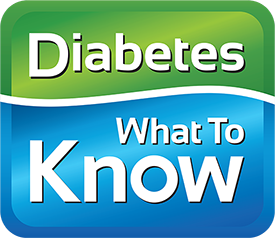By: Robin Fein (Wright) L.C.S.W.
When we have diabetes, our consumption of food is basic to survival. It’s also intertwined with many complicated physiological and psychological issues. According to E.L.Morrison MS, RD, binge-eating is more common among women with type 2:
“Women with Type 2 diabetes are more prone to developing binge-eating disorder… Patients with diabetes and binge eating disorder experience increases in blood sugar levels following a binge-eating episode. The weight gain that often results from this repetitive behavior can trigger or accelerate the associated complication of diabetes, such as neuropathy and retinopathy… and increased fatigue.” (from www.todaysdietitian.com)
Eating disorders, such as emotional eating and binge eating, are psychological diagnoses with physiological complications. I have often wondered, however, where does this cycle begin? Does our diabetic physiology predispose us for disordered eating?
Here’s my story:
As a 63-year old woman who has lived with depression, binge eating disorder, and Type 2 diabetes, I have often thought, did I have undiagnosed prediabetes that exacerbated my issues? Family members on both my mom and my dad’s side of the family had type 2 diabetes– did my genetics set a lifelong battle with food in motion?
It has always been hard for me to read my body cues. As a child in the ‘50’s, I grew up in the days of convenience food where white bread and TV dinners were great breakthroughs! Being chubby was how it all started and then I was an adolescent in the time of Audrey Hepburn. Thin had become the cultural standard of beauty, and a diet industry was born just in time to capitalize on my growing body dissatisfaction. Yo-yo weight gain and loss ensued and food has been a real struggle for me ever since…
Type 2 Diabetes and Food
For many of us, the physiologic reality of Type 2 diabetes has made our relationship with food all the more complicated. We can experience the very uncomfortable symptoms of a hypoglycemic episode where we can be driven to eat excessively to get out of the low, or sometimes eat too much to fight the chronic fatigue that we experience living with diabetes. Also, because food can be comforting, some of us use it for emotional reasons. We can use food to distract us from a feeling, such as anxiety or sadness. It can be our attempt to comfort or soothe ourselves on a physical level, hoping it takes care of the uncomfortable state we are in.
In order to manage our diabetes, we need to be conscious and informed about our food choices. It is not only vanity– there is a fear of the consequences if we don’t make the right choices. And this sets us up for disappointment in and judgment of ourselves. If we fail, it can become a measurement of our self-worth. “Why can’t I say no?” or “Why am I so impulsive?” Our food choices can then take on too much meaning in terms of how we see ourselves– are we “good” (meaning virtuous or “in control”) or “bad” (“out of control”)?
If you’d like to learn more helpful diabetes information, sign up for our FREE email program here.
The medical information on Diabetes – What To Know’s website is provided as an information resource only. The content is not in any way intended to be nor should you rely on it as a substitute for professional medical evaluation, diagnosis, advice and treatment.

